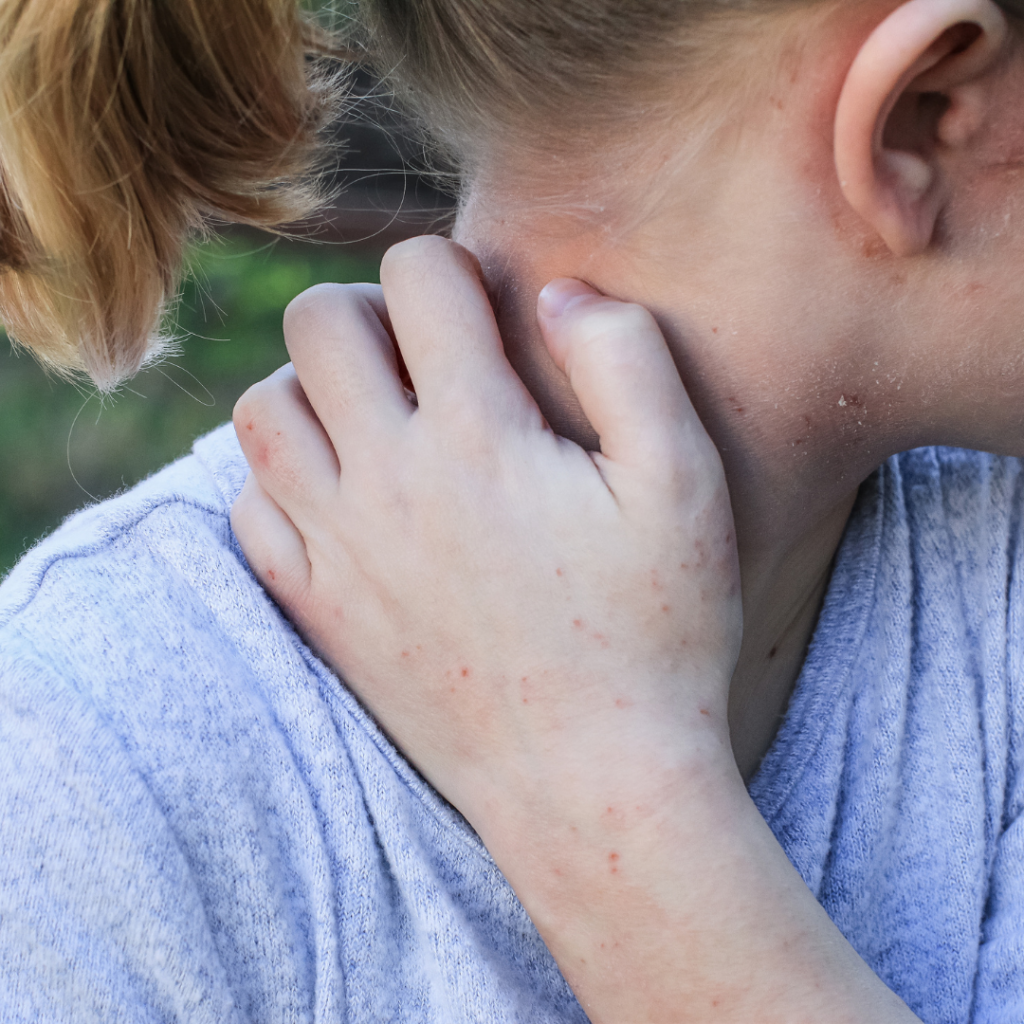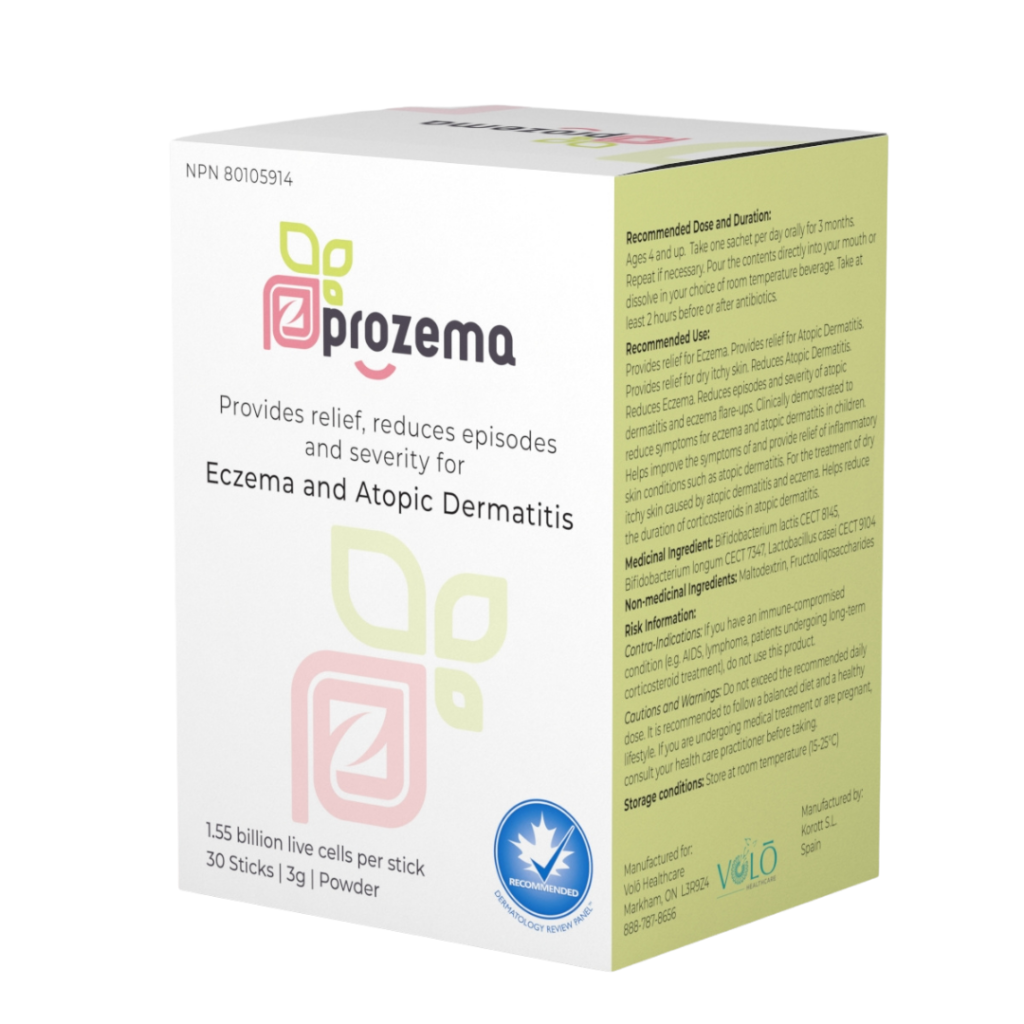
Eczema In Children
What Is Eczema In Children | Is Eczema Genetic | How To Treat Eczema | Eczema Triggers | Food Allergies | Eczema Diet For Kids | ProZema
What Is Eczema?
Eczema is a condition that causes the skin to become dry, itchy, and inflamed. There are several kinds of eczema and atopic dermatitis is the most common type. The first signs of eczema are dry, itchy skin. These dry patches of skin can turn red and scaly. Moreover, the skin can even have bumps that weep. In children, eczema shows up on the scalp, cheeks, and chin. The red, itchy rashes can also show up in skin folds, in areas such as the wrists, behind the knees, and the back of the neck. Eczema in children commonly occurs before 5 years of age.
What Causes Eczema?
The exact cause of eczema is not known. However, genetic factors and environmental triggers can lead to eczema in children. Children in families with a history of asthma and hay fever are more likely to develop eczema. Together, eczema, asthma, and hay fever are called atopic conditions. Allergies to certain foods and environmental triggers can also lead to an eczema flare up. Eczema flares cause the skin to become dry and itchy. On the other hand, the flares may ease off upon treatment, followed by periods of calm skin.
How To Treat Eczema In Children
While there is no cure for eczema, there are several treatment options. Topical moisturizers and topical corticosteroids can be applied to the skin to relieve eczema flares. Some other options are anti-inflammatory medications, biologics, and phototherapy. Also, probiotics have been proven to reduce the symptoms of eczema in children. There are several things parents can do at home as part of an eczema treatment and management plan.
- Moisturize your child’s skin frequently to repair the skin barrier
- Keep your child’s nails short to prevent scratches from itching
- Bathe or shower your child in lukewarm water
- Encourage your child to drink plenty of water
- Involve your child in their eczema treatment plan
- Support your child through their anxieties as eczema can cause stress

What Triggers Eczema In Children?
Environmental and household allergens can trigger eczema in children. For instance, your child’s eczema can worsen during the winter. This is due to the cold, dry air characteristic of the season.
In the spring, pollen can cause allergies and eczema flare ups. Overheating during the summer months can lead to eczema as well.
Some of the common triggers of eczema in children are:
- Scented lotions
- Harsh soaps
- Laundry detergents
- Household products
- Wool
- Polyester
- Heat
- Sweating
- Pet dander
- Pollen
- Dust
- Mold
- Allergens
- Irritants
- Tobacco smoke
- Certain foods
- Stress
Monitor your child’s symptoms and learn their triggers. This can help to manage your child’s eczema and reduce flare ups.
Eczema And Food Allergies
Children with parents who have allergies are at a higher risk of developing eczema. However, allergies themselves do not cause eczema.
In children, food allergies may accompany eczema. Foods that cause an allergic reaction can in turn lead to inflammation. This can cause your child’s eczema symptoms to worsen.
For severe eczema in children, food allergy tests can be helpful.
Eliminating trigger foods may help to reduce eczema flares. Common food allergies in children with severe eczema are peanuts, eggs, and milk. Track your child’s diet to see if any foods trigger their eczema.
Most importantly, it is recommended to discuss food allergies with your doctor or healthcare practitioner.
Eczema Diet For Children
An eczema diet for children varies based on individual needs. For instance, your child may be allergic to dairy. As such, dairy may lead to eczema flare ups. A diet without dairy can be an eczema diet in this specific example. Inflammatory foods such as sugar, gluten, and red meats may lead to inflamed skin. Because eczema leads to inflammation of the skin, anti-inflammatory foods may help as part of an eczema diet. Some examples of anti-inflammatory foods are fruits, dark leafy greens, and fish.

ProZema
It can be stressful to manage your child’s diet as a part of an eczema treatment plan. Children can be picky when it comes to foods. Your child may want to avoid different smells, textures, and colors. Food preferences can even change from one week to another.
While it remains important to monitor your child’s diet for triggers, you can now easily manage eczema symptoms and give your child their favorite foods. ProZema is a probiotic supplement that is clinically proven to reduce the symptoms of eczema and atopic dermatitis in children.
This probiotic supplement features a patented blend of three unique probiotic strains. They are: Bifidobacterium longum CECT 7347, Bifidobacterium lactis CECT 8145, and Lactobacillus casei CECT 9104.
Bifidobacterium longum CECT 7347 has anti-inflammatory properties. Bifidobacterium lactis CECT 8145 features antioxidant characteristics. Lactobacillus casei CECT 9104 promotes antioxidants and diversity in the gut microbiome.
ProZema comes in powdered form and is packaged in individual sticks for easy use. Simply snip open a stick and mix it with your child’s favorite food or drink. ProZema is odorless and has a neutral taste so even if your child’s food preferences change, you can continue giving them this probiotic supplement.
Read more about ProZema probiotic supplement here.
References:
National Eczema Association: Understanding Eczema in Children
KidsHealth: Eczema (Atopic Dermatitis)
WebMD: Eczema in Children: Skin Care Dos and Don’t
